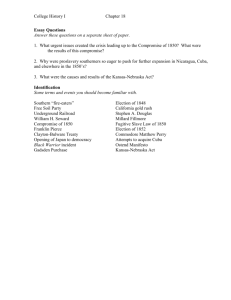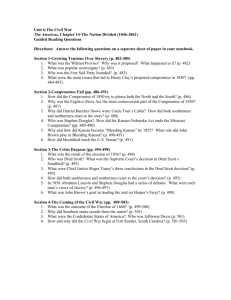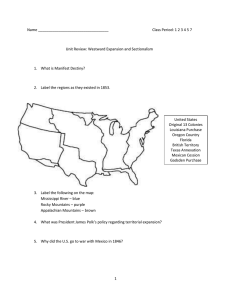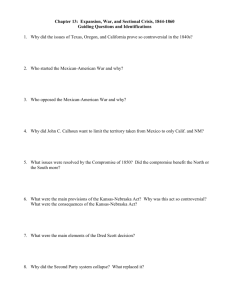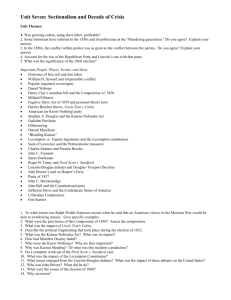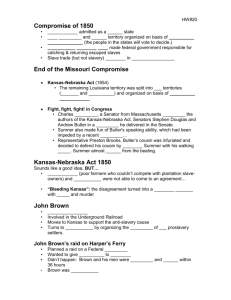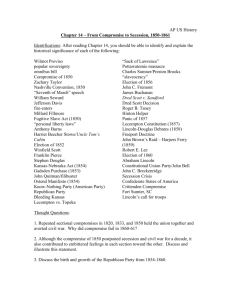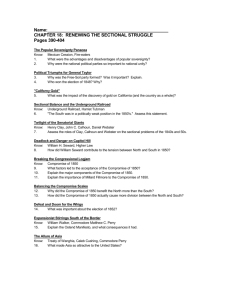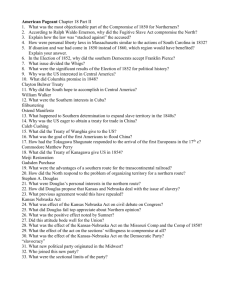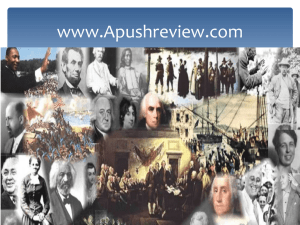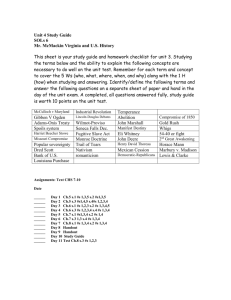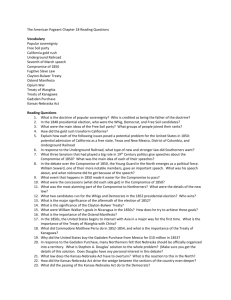File
advertisement
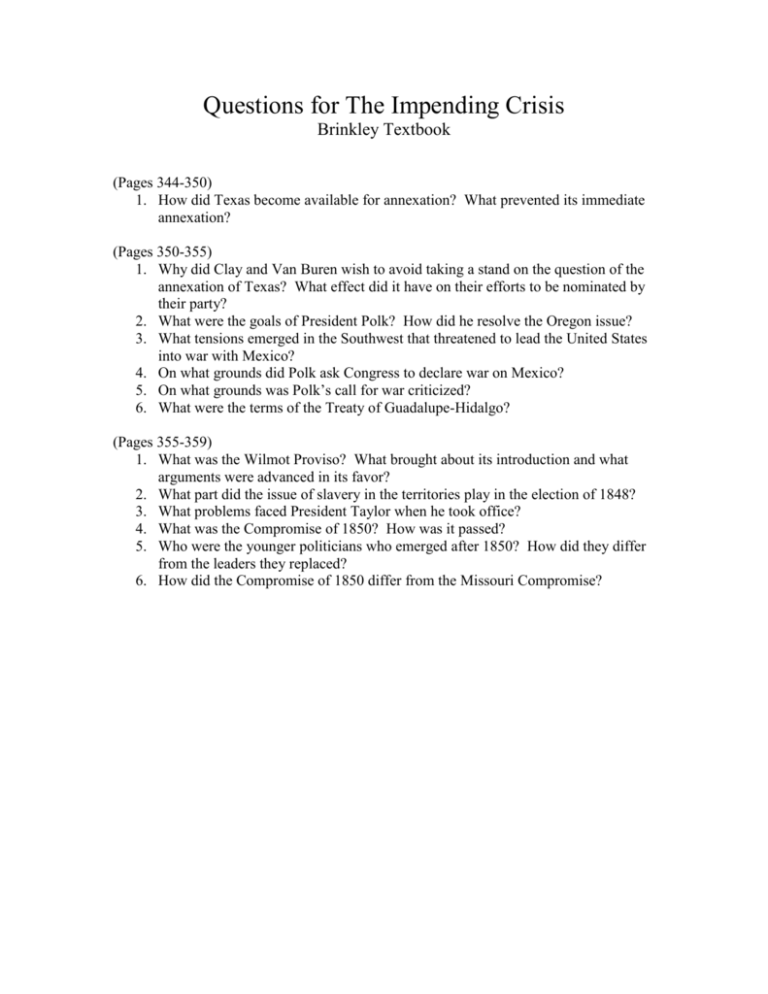
Questions for The Impending Crisis Brinkley Textbook (Pages 344-350) 1. How did Texas become available for annexation? What prevented its immediate annexation? (Pages 350-355) 1. Why did Clay and Van Buren wish to avoid taking a stand on the question of the annexation of Texas? What effect did it have on their efforts to be nominated by their party? 2. What were the goals of President Polk? How did he resolve the Oregon issue? 3. What tensions emerged in the Southwest that threatened to lead the United States into war with Mexico? 4. On what grounds did Polk ask Congress to declare war on Mexico? 5. On what grounds was Polk’s call for war criticized? 6. What were the terms of the Treaty of Guadalupe-Hidalgo? (Pages 355-359) 1. What was the Wilmot Proviso? What brought about its introduction and what arguments were advanced in its favor? 2. What part did the issue of slavery in the territories play in the election of 1848? 3. What problems faced President Taylor when he took office? 4. What was the Compromise of 1850? How was it passed? 5. Who were the younger politicians who emerged after 1850? How did they differ from the leaders they replaced? 6. How did the Compromise of 1850 differ from the Missouri Compromise? (Pages 359-367) 1. How did sections of the country react to the Compromise of 1850? 2. How did the issue of the transcontinental railroad help to reopen the sectional controversy? 3. How did the North react to the Kansas-Nebraska Act? The South? What effect did it have on the Whigs? The Democrats? 4. Who were the Republicans? What caused their formation? Which groups comprised the party and what was the party’s platform? 5. What problems were faced in the attempt to form a legitimate government in Kansas? Why did these problems arise? How was it that Kansas became a battleground for sectional controversy? 6. How did the free-soil ideology manifest itself in the Republican Party? What diverse views did it unite? 7. What effect did the Depression of 1857 have on the political divisions in America? How did it increase the tension between the North and South? What did both sides see as the significance of this economic decline? 8. What were the origins of the Dred Scott Case? What issues were involved and what decision was handed down by the court? How did the reaction to the case add to the sectional tension? 9. Why did the Lincoln-Douglass debates take place? How did Lincoln and Douglass differ on their solution to the question of slavery in the territories? 10. What were the goals of John Brown’s raid? Why did it have such an impact on the South? 11. What caused the split between the Northern and Southern Democrats in 1860 and what was the result of the division? Vocabulary Santa Anna Fifty Four Forty or Fight Zachary Taylor Free-Soil Party Forty Niners William Seward Ostend Manifesto Gadsden Purchase Pottawatomie Massacre Sumner-Brooks Incident Lincoln-Douglass Debates Crittenden Compromise Popular Sovereignty Compromise of 1850 Fugitive Slave Act Underground Railroad Harriet Tubman Uncle Tom’s Cabin Kansas-Nebraska Act Know Nothings Bleeding Kansas Dred Scott Case Freeport Doctrine Secession
